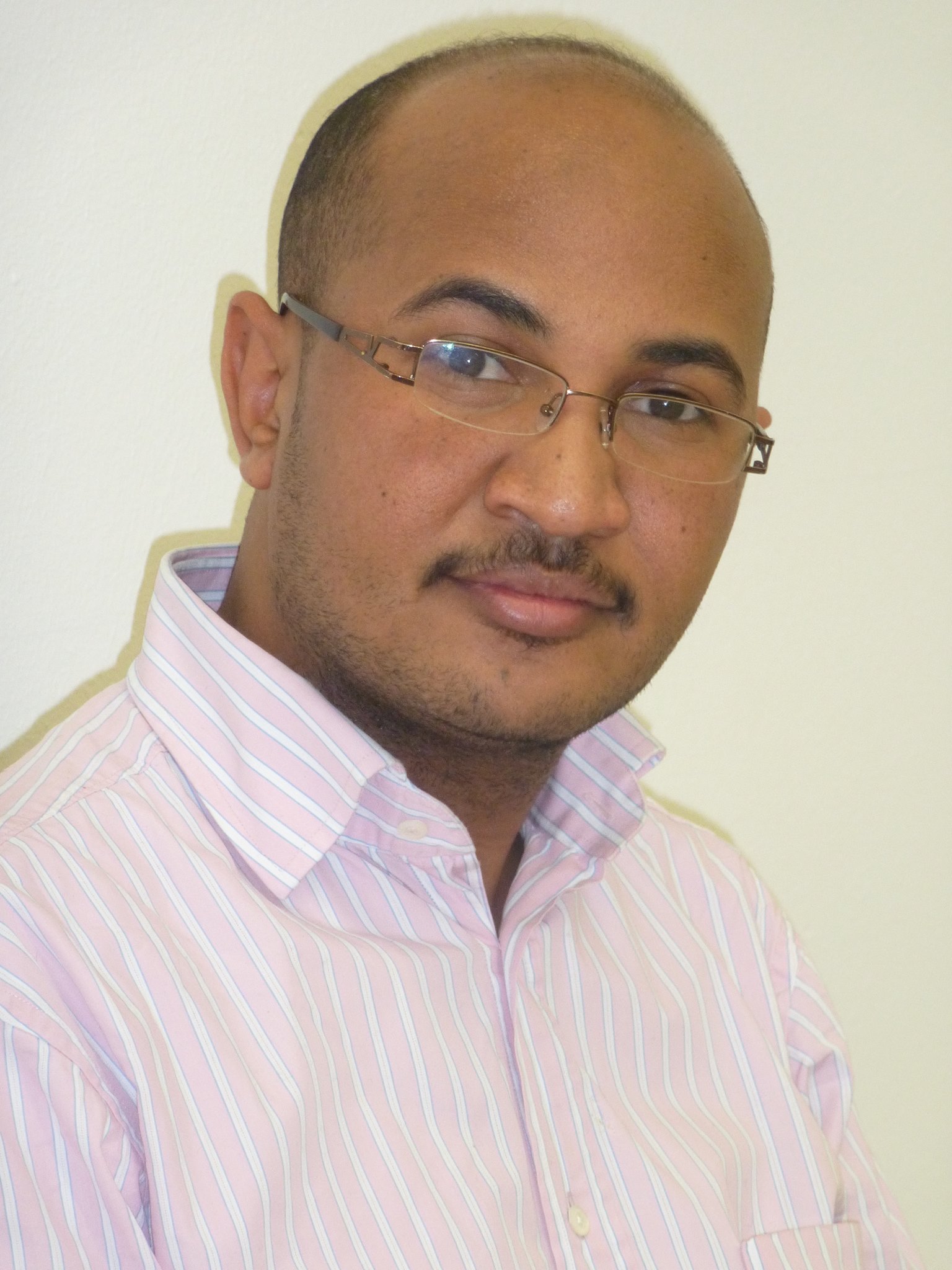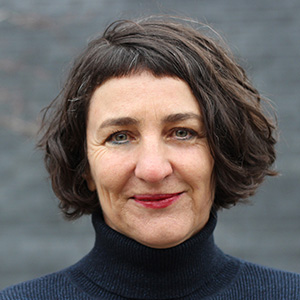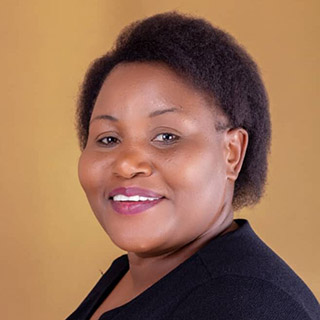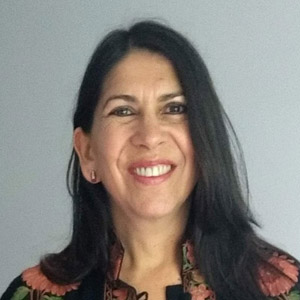
Plenary speakers

Liana Chua
Plenary I: More-than-Human Un/Commoning, Tue 30 Sept, 9am
Liana Chua teaches at the Department of Social Anthropology at the University of Cambridge. She has long-term research experience in Sarawak, Malaysian Borneo, where she has explored conversion to Christianity, ethnic politics and experiences of development and resettlement among Bidayuh communities. Her more recent research centred on the more-than-human politics, socialities and aesthetics of orangutan conservation in the ‘age of the Anthropocene’. Liana works across disciplinary and sectoral boundaries through collaborations with conservationists and public engagement. She also holds long-running research interests in theories of visuality and materiality, more-than-human socialities, indigenous museology, and the histories and politics of anthropological knowledge practices. Engagement beyond anthropology and the academy is an important part of her research practice. She is also committed to making anthropology more accessible and interesting to the general public.

Ethiraj Gabriel Dattatreyan
Plenary III: Un/Commoning Anthropology, Wed 1 Sept, 9am
Ethiraj Gabriel Dattatreyan is an associate professor of anthropology, core faculty in the culture media program, and affiliated faculty in the department of music at NYU. For the last decade he has utilized collaborative, multimodal, and speculative approaches to research how media consumption, production, and circulation shape understandings of migration, gender, race, and urban space in diasporic and postcolonial contexts. He is the author of two books, The Globally Familiar: Digital Hip Hop, masculinity, and urban space in Delhi, India (2020 Duke University Press) and Digital Unsettling: Decoloniality and Dispossession in the age of Social Media (2023 with Sahana Udupa, NYU Press).

Tamer Abd Elkreem
Plenary III: Un/Commoning Anthropology, Wed 1 Sept, 9am
Tamer Abd Elkreem holds a Ph.D. from Bayreuth University and is a researcher in the ESRC-funded project “Digitalising Food Assistance:
Political economy, governance and food security effects across the Global North-South divide”, hosted by SOAS, London. He is the Co-Director of Sudan Norway Academic Collaboration (SNAC) and a senior lecturer at the department of Sociology and Social Anthropology and the Deputy Director of Peace Research at the University of Khartoum.
His research interest focuses on power relations of development, Anthropology of post-colonial state, anthropology of mega developmental projects and critical analysis of its discourses and practices in Sudan.

Başak Ertür
Plenary IV: Academic Freedom in Times of Crisis, Thur 2 Oct, 1.30pm
Başak Ertür an interdisciplinary and critical legal scholar with an intellectual home in the BritCrit tradition of general jurisprudence – a body of scholarship combining a strong methodological focus on aesthetic and ethical dimensions of law, legal forms and methods, with critical attention to political practices of resistance in negotiating legal violence. Her book Spectacles and Specters (2022) draws on legal history, philosophy of language, deconstruction, political theory, and addresses questions of historiography. Her current research and forthcoming publications are focused on the themes of the relationship between legal factuality and public truth, counter-forensics, investigatory aesthetics, and rethinking the forum as a collective space of judgment. At the roundtable Academic Freedom in Times of Crisis she will speak about two forms of threats to academic freedom and how scholars, also in their roles as teachers, can address them. First, she reflects on her experiences with the criminal prosecution of Academics for Peace in Turkey; second, she discusses the impact of the British model of university funding on the independence of research and teaching.

Christiane Falge
Plenary III: Un/Commoning Anthropology, Wed 1 Sept, 9am
Christiane Falge is Professor of Health and Diversity at Bochum University of Applied Sciences and a medical anthropologist whose research centers on migration, community health, and health inequalities. Following extended transnational research on the global Nuer in Ethiopia, Sudan and the US she founded the Bochum City Lab, a pioneering site for decolonial, collaborative knowledge production through community research and empowerment which she developed in close cooperation with her colleague Silke Betscher. Commoning is at the heart of her approach, fostering solidarity and co-creation between academia and local communities. She has co-authored publications and video based health informations with community members and promotes community involvement and empowerment to address health inequalities. Currently, her work focuses on reducing health disparities by establishing solidarity-based neighborhood health centers grounded in community research and collective action.

Kileni Fernando
Plenary I: More-than-Human Un/Commoning, Tue 30 Sept, 9am
Kileni Fernando is a !Xung speaking San researcher and activist. She is a co-founding member of the Indigenous San youth organisation ǁAna-Djeh San Trust (AST), for which she has conducted various projects including “Ju-Taa-Khoe, Nature’s Recipes: An Introduction to Traditional Veld Foods for San Youth”. Kileni completed several short courses on marginalisation & inequality, as well as a diploma in legal history. She has volunteered as a community facilitator for the Women’s Leadership Centre (Windhoek, Namibia) on the project: “Speaking for ourselves, Voices of the San Young Women”. In 2017, she continued to be a voice for San as a curatorial development consultant for the !Khwa ttu San Heritage Centre on the West Coast of South Africa. In 2024, Kileni was the inaugural San Visiting Fellow at the Pitt Rivers Museum, University of Oxford. She is currently pursuing a Bachelor of Laws (LLB) degree with the Open University of Tanzania.

Ghassan Hage
Plenary IV: Academic Freedom in Times of Crisis, Thur 2 Oct, 1.30pm
Ghassan Hage is Future Generation Professor of Anthropology at the University of Melbourne. He has held visiting professorships at the American University of Beirut, University of Nanterre – Paris X, the University of Copenhagen and Harvard. He has been Fellow of the Australian Academy of the Social Sciences, of the Australian Academy of the Humanities, of the British Academy of the Social Sciences and served as president of the Australian Anthropological Society. He has published several books on immigration, race and refugees in Australia. For more than 40 years Hage researched and published on the various dimensions of Israeli and Palestinian society, including on anti-Arab racism and Antisemitism. More recently he developed a ‘relational imperative’ and argued that the very nature of the post-colonial world entails the inevitability of co-existence and living together. Currently he prepapres a more theoretical work on the social phenomenology of the French sociologist Pierre Bourdieu (Pierre Bourdieu’s Political Economy of Being, forthcoming 2025).

Njathi Kabui
Conference party, Wed 1 Oct, 8pm
Njathi Kabui is a food anthropologist, culinary activist, and organic chef with a passion for food justice. To promote general food literacy, he developed “Afrofuturistic Conscious Cuisine” – a disruptive approach that combines indigenous and healthy foods to promote sovereignty, health, and food justice.
His innovative cuisine has been showcased across Africa, Europe, the USA, and the UAE, with lectures at universities including Duke, University of Cape Town, and University of Michigan. Chef Kabui works closely with marginalized communities and practices urban organic farming in North Carolina, where he lives. In his native Kenya, he operates his own farm and established the Food Literacy and Sustainability Center in Naivasha.
Kabui holds an MA in Political Science and Philosophy, double Masters in Medical and Urban Anthropology, and trained as a chef at the Centre of Green Studies in North Carolina. His cuisine is rooted in the belief that the best of African food lies in the future, connecting traditional wisdom with innovative, sustainable approaches to promote food justice.
https://www.chefkabui.com/

Mario Krämer
Plenary II: Authoritarian Publics. Anthropological Perspectives on the New Right in Germany, Tue 30 Sept, 6pm
Mario Krämer is Professor of Social and Cultural Anthropology at the University of Cologne and a principal investigator of the DFG-funded Research Unit “Transborder Mobility and Institutional Dynamics” (FOR 5183). His main fields of research are political and environmental anthropology and he has conducted long-term ethnographic fieldwork in Southern Africa and Europe. The power and legitimacy of chieftaincy and dynamics of political violence are the foci of his research in Southern Africa. One of his current research projects deals with the nexus of environmentalism, traditionalism and rural-urban relations in contemporary Germany and he examines the relationship between nature conservation and opposition to wind power in particular (see his recent publication in the Special Issue ‘Justice in the Anthropocene’ in Zeitschrift für Ethnologie / Journal of Social and Cultural Anthropology 2024 149(2).

Mary Mbewe
Plenarveranstaltung III, Mi 1. Okt., 9 Uhr
Mary Mbewe holds a Ph.D. from the University of the Western Cape and works a Senior Lecturer at Mulungushi University, Zambia. Previously, she has worked as Keeper of History at the Moto Moto Museum, the second-largest Museum in Zambia. Here, she was involved and has been involved in many programs that have sought to transform museum practice by opening the core functions of the museum to multiple actors away from the conventional expertise of museum curators. By collaboratively reimagining problematic ethnographic museum collections, she has explored in depth the challenges that come with past and present forms of Un/Commoning anthropology. Dr. Mbewe is also a case study researcher with Open Restitution Africa, researching the provenance and restitution process of African cultural artefacts.

Andrea Mühlebach
Keynote, Mon 29 Sept, 5pm
Andrea Muehlebach is Professor of Maritime Anthropology and Cultures of Water at the University of Bremen, Germany, where she also leads the Bremen NatureCultureLab. Her current work expands long-standing interests in environmental and infrastructural politics, neoliberal and financialized citizenship, and global extractive regimes to include oceanic and maritime perspectives as well. Prior to joining Bremen, she worked at the University of Toronto and at the University of Chicago, where she also earned her Ph.D. She is the author of two monographs, The Moral Neoliberal: Welfare and Citizenship in Italy (University of Chicago Press, 2012), and A Vital Frontier: Water Insurgencies in Europe (Duke University Press, 2023).

Konstanze N’Guessan
Plenary II: Authoritarian Publics. Anthropological Perspectives on the New Right in Germany, Tue 30 Sept, 6pm
Konstanze N’Guessan is a Senior Researcher at the Department of Social Anthropology and African Studies in Mainz. Her research interests encompass a diverse range of topics, including nationalism, state ritual, historiography, memory studies, parenting and child development theory, performativity and play, transgressive humor, and the far right. Until 2024, she was part of the interdisciplinary BMBF research project MISRIK (Memes, Ideas, Strategies of Far-Right Digital Communication), which focused on memes, trolling, and other forms of “ludic fascism” in and through participatory social media. Research insights from this project were disseminated into primary prevention tools, experimenting with different modes of knowledge transfer, such as the game “Mem-ori,” which playfully explores how memes promote far-right narratives and conspiracy theories. Beyond her research on ludic fascism, Konstanze has incorporated games and playfulness into anthropological teaching and public anthropology.

Nitzan Shoshan
Plenary II: Authoritarian Publics. Anthropological Perspectives on the New Right in Germany, Tue 30 Sept, 6pm
Nitzan Shoshan is Professor at the Colegio de México in Mexico City. He holds a Ph.D. from the University of Chicago and is the author of “The Management of Hate: Nation, Affect, and the Governance of Right-Wing Extremism in Germany”, published with Princeton University Press. This study was awarded the “William A. Douglass Prize in Europeanist Anthropology, Society for the Anthropology of Europe of the American Anthropological Association” in 2017, as well as Honorable Mentions for the 2017 Gregory Bateson Prize and APLA Book Price. His book was one of the first studies to look closely at milieus of radical Right youth cultures in Berlin. Since, he has increasingly shifted his attention from the ‘far right’ to right-wing politics as part of the political mainstream (Shoshan 2020) and to anti-muslim Racism in Germany (Kalmar and Shoshan 2024).

Nandini Sundar
Plenary IV: Academic Freedom in Times of Crisis, Thur 2 Okt, 1.30pm
Nandini Sundar is Professor of Sociology at the Delhi School of Economics, Delhi University. She obtained a Bachelor of Arts degree in Philosophy, Politics and Economics from Somerville College, Oxford in 1989 and Master of Arts, Master of Philosophy and Ph.D. in Anthropology from Columbia University. Her research interests include constitutionalism, authoritarianism, academic freedom, democracy, law, inequality, and agrarian ecologies. She is currently on the editorial advisory boards of Current Sociology, Sociology, Contributions to Indian Sociology, HAU Journal of Ethnographic Theory, Cambridge Journal of Anthropology, Anthropological Theory, and INSEE (Ecology, Economy, Society). She was awarded the M.N. Srinivas Memorial Prize, 2003, Infosys Prize for Social Sciences (Social Anthropology) in 2010, the Ester Boserup Prize for Development Research, 2016 and the Malcolm Adiseshiah Prize for Distinguished Contributions to Development Studies, 2017.

Astrid Ulloa
Plenary I: More-than-Human Un/Commoning, Tue 30 Sept, 9am
Astrid Ulloa works at the Department of Geography of the National University of Colombia. Her research and teaching focus on Indigenous peoples’ movements, ethnicity, eco-governmentality, environmental anthropology, feminism, and climate change with a particular expertrise in Colombia. She has conducted ethnographic fieldwork with Wayúu people in La Guajira region, with various Indigenous people in the Sierra Nevada de Santa Marta, and with Indigenous Embera people in the Pacific Coast rainforest of Colombia’s Chocó region. Astrid has worked at the Universidad del Cauca, University of Manitoba, Université de Paris III, Universidad del Magdalena, Universidad de los Andes, and Instituto Colombiano de Antropología e Historia.

Martin Zillinger
Plenary IV: Academic Freedom in Times of Crisis, Thur 2 Oct, 1.30pm
Martin Zillinger works as Professor of Social and Cultural Anthropology at the University of Cologne and is currently president of the German Association of Social and Cultural Anthropology. His major field research has been in Morocco on trance, ritual and new media. Since his Ph.D. (awarded with the Frobenius research price) his work expands on his interest in sensing, sense-making and new publics in the Euro-Mediterranean. More recently he worked on the category project of the Durkheim school, and on provincialising the restitution debate. Since 2017 he is co-editor of the boasblogs.
